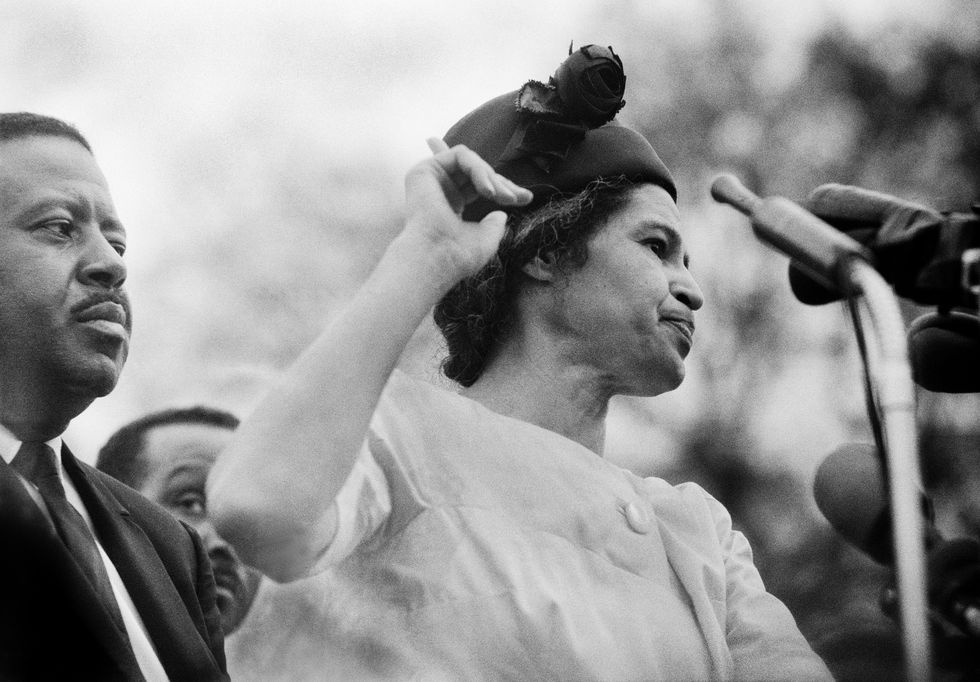In December 1955, Rosa Parks made a courageous stand against racial injustice by refusing to give up her bus seat in Montgomery, Alabama. This act of defiance ignited a firestorm of activism, prompting a citywide bus boycott that lasted over a year. The boycott culminated in a significant victory when the Supreme Court ruled that segregation on public buses was unconstitutional. Parks' bravery not only sparked a movement but also laid the groundwork for future civil rights actions, making her a symbol of resistance and equality.
However, the road was not easy for Parks. Despite her pivotal role in the boycott, she and her husband faced severe repercussions, including job losses and community isolation. Over the years, Parks endured both hardships and triumphs, which ultimately shaped her legacy as a respected figure in the fight for civil rights. Her story serves as an inspiring reminder of the power of individual action against systemic oppression.
This article will explore the life and impact of Rosa Parks, highlighting her struggles, achievements, and the ongoing relevance of her work in today's society. Through her experiences, we can learn valuable lessons about perseverance, courage, and the importance of standing up for what is right.
Table of Contents
- Biography of Rosa Parks
- Early Life and Background
- The Montgomery Bus Boycott
- Life After the Boycott
- Collaboration with Civil Rights Leaders
- Legacy and Impact
- Final Thoughts
Biography of Rosa Parks
Rosa Parks was born on February 4, 1913, in Tuskegee, Alabama. She grew up in a segregated society, facing the harsh realities of racial discrimination from a young age. Despite these challenges, she became an active member of the civil rights movement, advocating for equality and justice.
| Detail | Information |
|---|---|
| Name | Rosa Louise Parks |
| Date of Birth | February 4, 1913 |
| Place of Birth | Tuskegee, Alabama |
| Date of Death | October 24, 2005 |
| Occupation | Activist, Tailor |
| Known For | Refusal to give up her bus seat, Montgomery Bus Boycott |
Early Life and Background
Rosa Parks was raised in a family that valued education and activism. After her parents separated, she lived with her mother and grandparents, who instilled in her a strong sense of justice. Parks attended segregated schools and faced discrimination, which fueled her desire to fight for civil rights.
She worked as a tailor, which provided her a modest living, but her heart was always in activism. Parks joined the NAACP (National Association for the Advancement of Colored People) in 1943, where she began working tirelessly to combat racial injustice in her community.
The Montgomery Bus Boycott
The turning point in Rosa Parks' life came on December 1, 1955, when she refused to give up her bus seat to a white passenger in Montgomery. Her arrest sparked outrage and led to the formation of the Montgomery Improvement Association, which organized a bus boycott that lasted for over a year.
Parks' act of defiance became a symbol of the struggle against segregation, and the boycott resulted in significant changes in the law, including the Supreme Court ruling that deemed bus segregation unconstitutional. This event marked the beginning of a larger civil rights movement across the United States.
Life After the Boycott
Following the boycott, Parks faced immense challenges, including job loss and threats against her life. She and her husband were forced to move to Detroit in search of better opportunities. Despite her efforts to continue her activism, finding stable employment remained difficult.
In Detroit, Parks worked various jobs, including as a seamstress and later as an assistant to Congressman John Conyers. Her work in this role allowed her to continue advocating for civil rights at a political level.
Collaboration with Civil Rights Leaders
Throughout her life, Parks collaborated with influential civil rights leaders, including Martin Luther King Jr. and Malcolm X. She admired King's non-violent approach but also appreciated Malcolm X's advocacy for self-defense.
Parks attended numerous meetings and rallies, always advocating for justice and equality. Her experiences with these leaders enriched her understanding of the civil rights movement and its diverse strategies.
Legacy and Impact
Rosa Parks passed away on October 24, 2005, but her legacy lives on. She is remembered as the "mother of the civil rights movement," and her actions continue to inspire activists around the world. Parks' story teaches us about the importance of standing up for justice, no matter the cost.
In recognition of her contributions, various institutions and awards have been named in her honor, including the Rosa Parks Museum and the Rosa Parks Day of Courage. Her life serves as a testament to the power of one individual's courage to bring about change.
Final Thoughts
The journey of Rosa Parks is a powerful reminder of the impact one person can have on society. Through her bravery and resilience, she ignited a movement that changed the course of history. As we reflect on her legacy, let us continue to fight for equality and justice in our communities, inspired by her unwavering courage.
Rosa Parks' story is not just a chapter in history; it is a call to action for all of us to stand up against injustice. Let her legacy guide us as we navigate the challenges of our time, ensuring that her spirit of activism lives on.

Rami Malek: The Rise Of An Award-Winning Actor
Greta Thunberg: The Young Voice Of Climate Activism
Unraveling The Life And Career Of James Comey: A Detailed Biography

